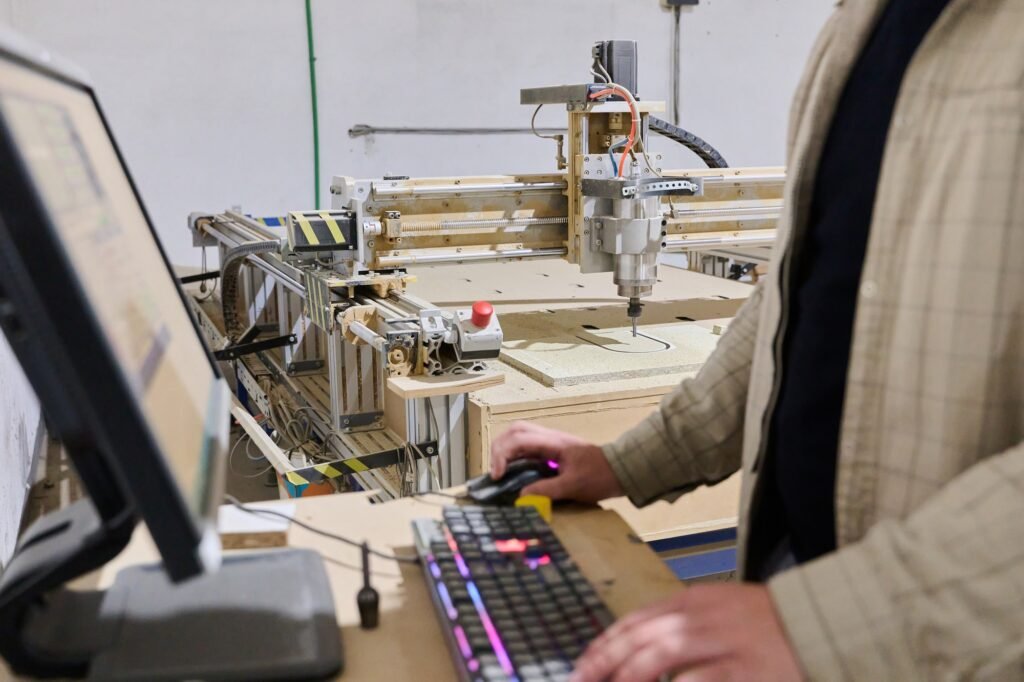Introduction
Selecting a reliable CNC machining service provider is crucial for the success of your manufacturing projects. The right partner can ensure high-quality parts, on-time delivery, and cost-effective solutions, while the wrong choice can lead to delays, quality issues, and increased expenses. This article outlines the key factors to consider when choosing a CNC machining supplier for your business needs.
1. Technical Capabilities
Why it Matters:
Your chosen supplier must have the technical expertise and equipment to meet your specific project requirements.
What to Look For:
- Range of CNC machines (3-axis, 4-axis, 5-axis, Swiss lathes, etc.).
- Ability to handle different materials (metals, plastics, composites).
- Experience with complex geometries and tight tolerances.
- Availability of secondary processes (grinding, EDM, heat treatment).
2. Quality Assurance and Certifications
Why it Matters:
Consistent quality and adherence to industry standards are non-negotiable, especially in sectors like aerospace, automotive, and medical devices.
What to Look For:
- ISO 9001, AS9100, or other relevant certifications.
- In-house quality control measures (CMM inspections, surface finish testing).
- Documented inspection reports and traceability.
- Customer references and case studies showcasing quality performance.
3. Production Capacity and Lead Times
Why it Matters:
Your supplier should be capable of handling your order volume within the required timeframe.
What to Look For:
- Maximum production capacity (both low-volume prototypes and large-scale orders).
- Typical lead times for prototypes and production runs.
- Flexibility to accommodate urgent orders or design changes.
- Efficient workflow and production planning systems.
4. Material Sourcing and Inventory
Why it Matters:
Reliable material sourcing ensures the use of certified, high-quality raw materials that meet your specifications.
What to Look For:
- Partnerships with reputable material suppliers.
- Ability to source specialty or exotic materials (e.g., Inconel, titanium).
- In-house inventory management to reduce lead times.
- Material certifications and traceability documentation.
5. Cost-Effectiveness
Why it Matters:
While quality is paramount, competitive pricing affects your overall project budget and profitability.
What to Look For:
- Transparent pricing structure (no hidden fees).
- Competitive quotes for both prototypes and bulk orders.
- Value-added services (design optimization, process improvements).
- Ability to suggest cost-saving alternatives without compromising quality.
6. Communication and Customer Support
Why it Matters:
Clear and proactive communication ensures smooth project management and reduces the risk of errors.
What to Look For:
- Dedicated account managers or project engineers.
- Responsiveness to inquiries and feedback.
- Regular project updates and progress reports.
- Willingness to collaborate during design and production phases.
7. Location and Logistics
Why it Matters:
Geographical location affects shipping times, costs, and the ease of communication.
What to Look For:
- Proximity to your facility or target market.
- International shipping capabilities and export experience.
- Established logistics partnerships for reliable delivery.
- Consideration of local regulations, tariffs, and customs procedures.
8. Technological Advancements
Why it Matters:
A forward-thinking supplier invests in modern technologies to improve efficiency, quality, and capabilities.
What to Look For:
- Use of advanced CAD/CAM software for accurate programming.
- Investment in automated manufacturing solutions.
- Integration of Industry 4.0 practices (IoT, data analytics).
- Continuous improvement and innovation mindset.
9. After-Sales Support and Warranty
Why it Matters:
Reliable after-sales support ensures issues are resolved promptly, protecting your investment.
What to Look For:
- Clear warranty policies for defective parts.
- Technical support for assembly or application guidance.
- Post-production services (repairs, adjustments, refinishing).
- Long-term partnership approach rather than one-time transactions.
10. Reputation and References
Why it Matters:
A supplier’s track record reflects their reliability and quality standards.
What to Look For:
- Client testimonials and success stories.
- Online reviews and industry reputation.
- Longevity in the CNC machining business.
- Portfolio of past projects similar to your needs.
Conclusion
Choosing the right CNC machining service provider requires careful evaluation of technical capabilities, quality standards, production capacity, and customer service. By considering these key factors, you can select a reliable partner who will deliver precision parts, meet deadlines, and support your business growth.
Investing time in vetting potential suppliers will save you from costly mistakes and ensure a successful, long-term collaboration.










